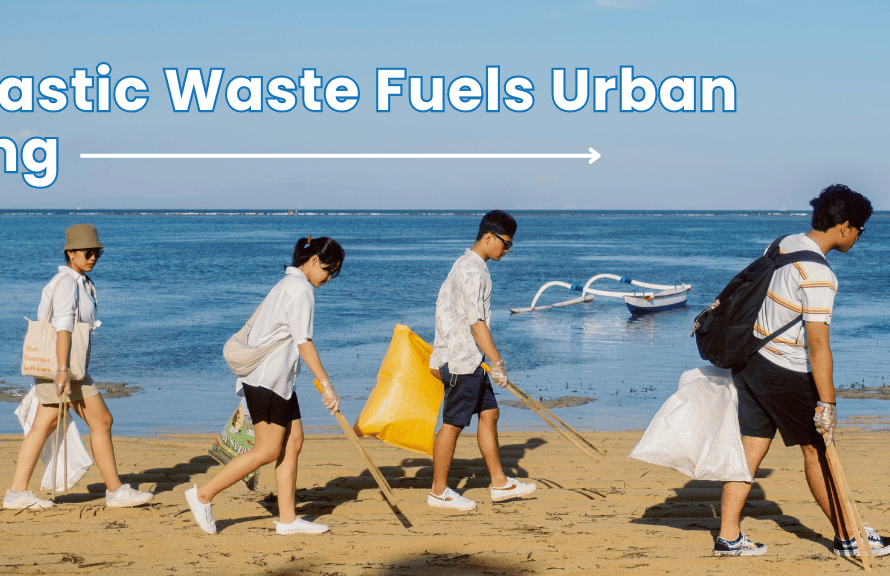Discover how circular urban plastic ecosystems are transforming city waste into opportunity through local recycling, tech, and citizen engagement.
A circular urban plastic ecosystem reimagines the way cities handle plastic waste—by fostering local circular economies where plastic materials are continuously reused, recycled, and repurposed. This innovative model reduces dependence on landfills, curbs environmental pollution, and lessens the need for virgin plastic production.
What Is a Circular Urban Plastic Ecosystem?
Unlike the traditional linear “take-make-dispose” model, circular ecosystems:
Collect and sort plastic waste locally
Process it through decentralized or neighborhood-level recycling facilities
Create new products from recycled plastic for use within the city
Engage citizens and informal waste workers as active participants
Integrate technology and local governance for tracking and accountability
This approach not only promotes environmental sustainability but also fosters economic opportunities and urban resilience.
Case Study: Earth5R Plastic Waste Recovery in Mumbai
A leading example is the Earth5R model in Kurla, Mumbai—a densely populated urban hotspot:
Community-Driven: Local volunteers and informal waste workers are trained to carry out door-to-door plastic collection and segregation.
Decentralized Collection: Waste is tracked using a mobile app, enabling neighborhood-level sorting.
Recycling & Repurposing: Collected plastics are processed into pellets for local manufacturing.
Environmental Impact: Over 100 tonnes of plastic have been diverted from streets and waterways, preventing about 300 tonnes of CO₂ emissions.
Socioeconomic Benefits: Informal waste pickers gain formal employment, safer working conditions, and stable livelihoods.
This integrated, localized model demonstrates the power of combining civic engagement, technology, and decentralized infrastructure.
Emerging City Initiatives Worldwide
Cities around the world are adopting similar models:
Santa Fe, Argentina and Salvador, Brazil focus on ocean-bound plastic through city-wide circular economy initiatives.
Bogor, Indonesia partners with startups to turn plastic waste into eco-paving and building materials.
Ambikapur, India runs women-led decentralized waste networks that reuse plastic in innovative ways.
These examples show that circular systems can be adapted to various cultural and geographic contexts.
Key Elements for Success
The success of circular urban plastic ecosystems depends on:
Multi-stakeholder collaboration among governments, communities, businesses, and innovators.
Local recycling infrastructure to reduce the carbon footprint from transport and centralized processing.
Digital tools that track plastic flows and encourage citizen participation.
Supportive policies and incentives to build circular markets and sustainable reuse models.
Outlook
Circular urban plastic ecosystems represent a forward-looking solution that merges governance, grassroots participation, and smart technologies. By closing the plastic loop locally, cities can become cleaner, more climate-resilient, and socially inclusive.
This model could serve as a global blueprint for achieving sustainable urban plastic management by 2050.
Conclusion: PolyNext—Accelerating the Circular Plastic Movement
As cities increasingly look to adopt circular plastic systems, PolyNext will serve as a powerful platform to accelerate this transition. The event will bring together innovators, policymakers, environmentalists, and citizen-led initiatives to explore cutting-edge solutions for plastic lifecycle management. By fostering global collaboration and showcasing emerging technologies, PolyNext will help shape the future of sustainable urban plastic ecosystems—empowering cities to close the loop locally and achieve circularity by 2050.


